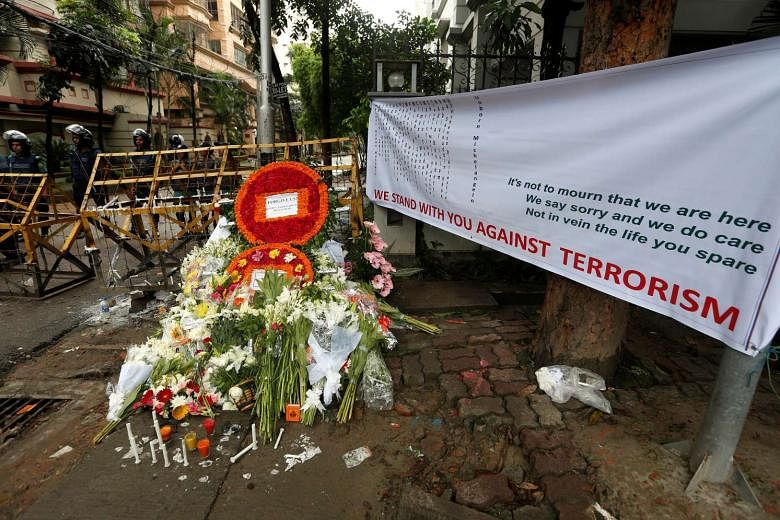PETALING JAYA (THE STAR/ASIA NEWS NETWORK) - The rise of extremism in Bangladesh seems to be accelerating, with spillover effects expected in the region, terror experts have warned .
Friday night's terror attack at a Western-styled cafe in Dhaka was the largest in the country, with 22 people including 18 foreigners being killed.
Previously, attacks have been carried out on outspoken individuals advocating secular or liberal lifestyles or those seen as criticising Islam.
Those dead include writers, LGBT activists, atheists and academics with the BBC reporting that since February 2013, at least 40 deaths have been blamed on Islamic militants.
There have also been attacks have on religious minorities, with a Hindu priest being hacked to death in the Jhenaidah district on Friday morning, the second such killing within a few weeks.
While the Islamic State in Iraq and Syria (ISIS) has claimed many of these attacks, the police say they are members of Jamaatul Mujahideen Bangladesh (JMB), an Islamic fundamentalist organisation.
Associate Professor Kumar Ramakrishna however said that Bangladesh must acknowledge the possibility that even if a domestic extremist group carried out the attack, they may have been doing so under the direction or at the very least, the ideological influence of ISIS.
"I think the latest outrage and the clear targeting of foreigners speaks very loudly of an international ISIS footprint," said Prof Kumar who is head of policy studies at the S. Rajaratnam School of International Studies Singapore.
He said that Bangladesh is being targeted by both ISIS and Al-Qaeda as it is a strategic country with 160 million Sunni Muslims, a large young population and political infighting amongst the elites.
He added that geographically the country is next to South-east Asia, which is home to a quarter of the world's Muslims.
"It makes strategic sense for the so-called ISIS caliphate to target the country in an attempt to project its influence eastwards from Iraq/Syria," he said.
In March, the Singapore government had arrested eight Bangladeshi men accused of plotting terror attacks back in their home country.
This followed the arrests and subsequent deportation of 27 Bangladeshi construction workers who supposedly supported Al-Qaeda and ISIS.
"The Singapore arrests of radicalised Bangladeshi workers in 2016 are a clear sign that what is happening in Bangladesh is having spillover effects on our own region," said Prof Kumar.
It was on Sunday learnt that two of those involved in the Dhaka café terror attack had studied in Malaysia previously.
Nibras Islam and Rohan Imtiaz both had studied at the Monash University in Malaysia. Both came from well-to-do middle class families.
Political analyst Professor Dr Aruna Gopinath who is with the Defence University of Malaysia said the authorities in Malaysia must keep a vigilant lookout.
"We have to be wary and monitor who comes into the country," said Dr Aruna who specialises in terrorism studies.

